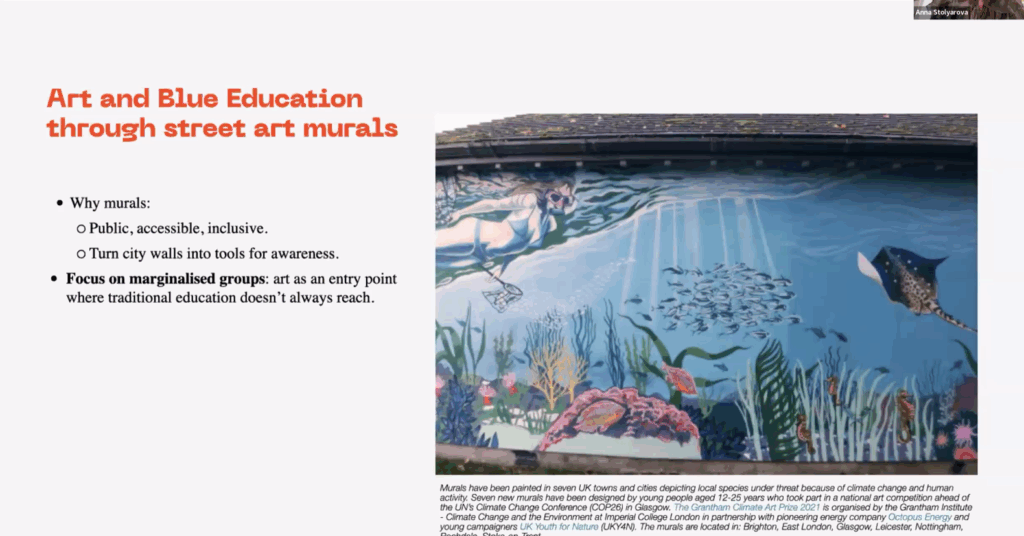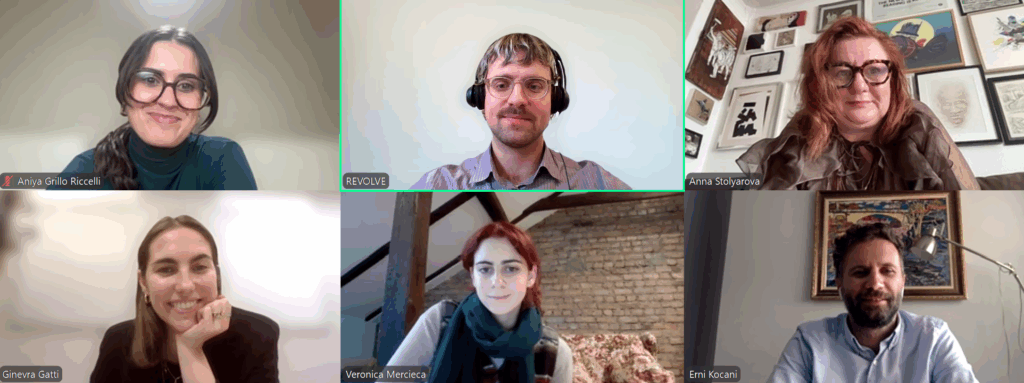On 28 October 2025, the BlueLightS Project will host an online webinar bringing together city representatives, cultural leaders, and environmental experts to exchange best practices in blue education—an approach linking ocean literacy, sustainability, and community engagement. Organized by ALDA’s Environment & Climate Hub, the event showcased how European cities are driving marine awareness and inclusion through innovative local actions.

Ginevra Gatti (ALDA) opened the session with an introduction to ALDA’s environmental mission and the #MakeEUBlue – Cities in Action campaign, which encourages municipalities to promote ocean stewardship. Following her introduction, speakers from across Europe shared field experiences that blend creativity, governance, and sustainability.
Anna Stolyarova, founder and director of the Street Art Museum Amsterdam (SAMA),illustrated how street art can serve as a powerful educational tool. Through murals and participatory projects, SAMA turns urban spaces into classrooms where citizens of all ages, including marginalized groups, learn about ocean protection and community resilience.

From France, Aniya Grillo Riccelli of Debating Europe (Friends of Europe) presented the efforts of Marseille and other French cities in linking blue education to local politics and the economy, demonstrating how public engagement can shape sustainable coastal governance.
Erni Kocani of Albania’s Urban Research Institute (URI) discussed waste management and marine litter challenges in the Western Balkans, highlighting success stories that integrate fishermen and local communities in tackling pollution. He also explored the role of sustainable tourism in addressing marine waste.
Representing Malta, Veronika Mercieca of the Port Regional Council outlined national campaigns and cultural initiatives that foster marine awareness ahead of the 2031 EU Capital of Culture selection. Her contribution focused on how cultural heritage, education, and environmental action intersect to support local development.
The webinar concluded with a roundtable discussion and Q&A, inviting all speakers to reflect on the future of blue education beyond marine litter—toward new fields such as sustainable tourism, art-based learning, and civic collaboration.
Thank you to all the speakers and participants who took part in this great discussion!
If you want to rewatch the webinar, click HERE.

Want to learn more about our project and register?
Register or log in to the Blue Education Platform!

